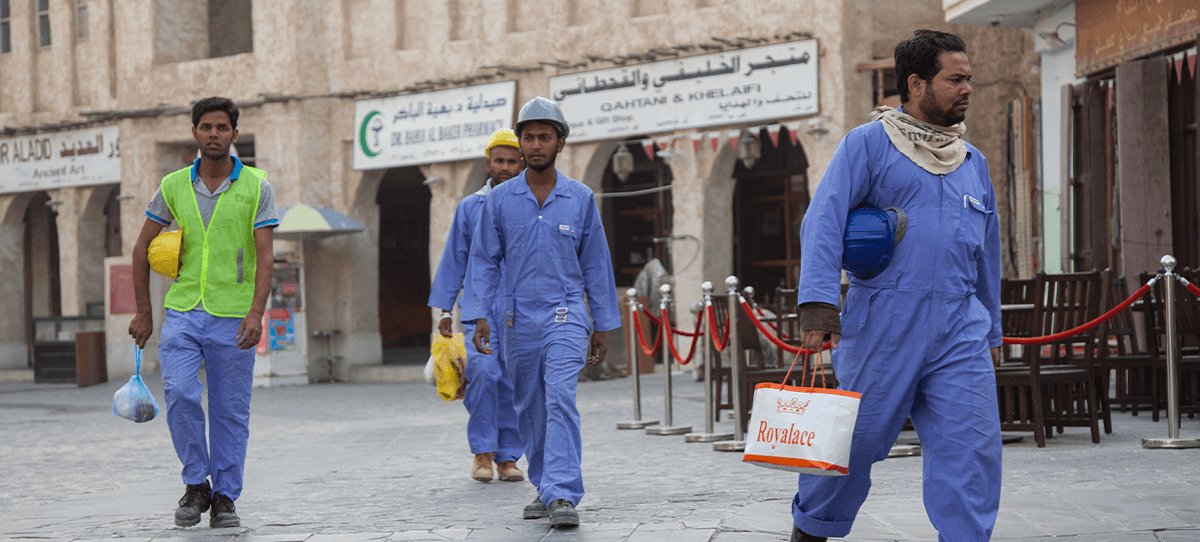For decades, Indian workers have sought employment in the Gulf region, lured by the promise of higher wages and better opportunities. However, for many, this dream quickly turns into a nightmare of abuse, exploitation, and modern-day slavery. Saudi Arabia, one of the largest employers of migrant labour from India, has repeatedly come under scrutiny for its treatment of foreign workers. Reports from human rights organisations, journalists, and advocacy groups have highlighted the systemic violations of labour rights that leave thousands of Indian workers vulnerable and trapped in brutal conditions.
At the heart of this exploitation is the kafala system, a sponsorship mechanism that ties migrant workers to their employers. Under this system, workers cannot change jobs, leave the country, or even challenge workplace abuse without the permission of their employer. This effectively grants employers unchecked power over workers, leading to rampant mistreatment and forced labour. Many Indian workers arrive in Saudi Arabia unaware of these restrictions, only to find themselves trapped with little to no recourse.
A 2014 Amnesty International report documented widespread abuse faced by Indian workers in the Gulf. Some of the most egregious violations include withholding of wages, where employers frequently delay or deny payments, forcing workers to survive in extreme poverty. Employers also confiscate workers’ passports, ensuring they cannot leave or seek help. Many labourers work in life-threatening environments without adequate safety measures, leading to severe injuries or even death. Some workers, especially domestic workers, report being subjected to beatings, sexual violence, and harassment. Additionally, recruitment agencies and middlemen often deceive workers about job conditions, trapping them in inhumane employment.
Reports have shared harrowing testimonies from Indian workers who have suffered under this exploitative system. Many migrant workers arrive in the Gulf with the hope of earning a better livelihood, only to find themselves trapped in gruelling conditions. They are often deceived by false promises of high-paying jobs, only to be forced into working excessively long hours without proper compensation. Employers frequently confiscate their passports, stripping them of their freedom and leaving them unable to escape their dire circumstances. Many are housed in overcrowded, unsanitary accommodations and face constant fear of retaliation if they attempt to resist or escape. In some cases, those who try to flee are apprehended, detained, and deported without receiving any of the wages they were owed.
Similarly, domestic workers, many of them women from India, have reported cases of extreme violence and sexual abuse. A significant number face physical assaults from their employers, and without legal protection or the ability to leave, they are left helpless and traumatized.
The Indian government has been criticized for its inadequate response to the suffering of its citizens in the Gulf. While diplomatic efforts have been made to negotiate with Saudi authorities, these initiatives often fall short due to a lack of enforcement and accountability. Additionally, recruitment agencies and middlemen in India play a significant role in trafficking workers, often charging exorbitant fees and misleading job seekers about the realities of working in Saudi Arabia.
To combat these abuses, Saudi Arabia must abolish the kafala system and replace this exploitative framework with a legal structure that guarantees worker rights. Labour laws should include minimum wage protections, grievance mechanisms, and stricter penalties for abusive employers. India must regulate recruitment agencies more effectively and crack down on fraudulent agents that deceive workers about job conditions. The Indian government should increase diplomatic pressure on Gulf nations to ensure accountability regarding labour rights violations. Greater awareness campaigns must also be implemented to educate potential migrant workers about their rights and the risks involved in employment abroad.
The plight of Indian workers in Saudi Arabia is a stark reminder of the modern slavery that continues to persist despite international labor laws and human rights agreements. Until systemic reforms are implemented, thousands of Indian workers will remain trapped in a cycle of exploitation, their dreams of a better life shattered. The time for action is now—governments, activists, and international organizations must unite to dismantle this oppressive system and ensure dignity and justice for all migrant workers.





